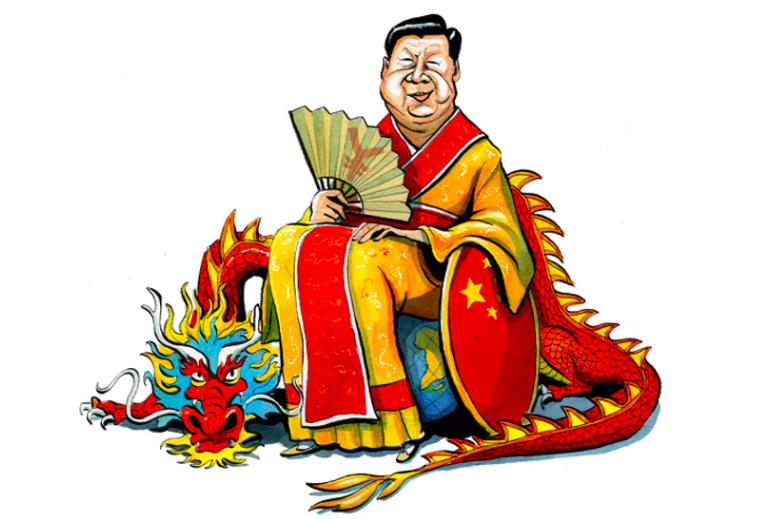A Chinese Communist Party Congress meeting a few months ago was intended to affirm President Xi Jinping for a second – and supposedly final – five-year term. Instead, it looked and felt like a coronation of someone settling in indefinitely, with hints of a personality cult.
Earlier on today Xinhua, a leading Chinese news agency, reported suggestions for 21 constitutional reforms that the government is proposing. Tucked away – suggestion number 14 – is the following (my translation):
Constitutional Article Seventy-Nine Section 3: ‘The terms of the President and Vice-President of The People’s Republic of China will coincide with the terms of the National People’s Assembly. Service from the President and Vice-President are not to exceed two consecutive terms’
will be changed to
‘The terms of the President and Vice-President of The People’s Republic of China will coincide with the terms of the National People’s Assembly.’
So the two-term presidency limit is being abolished, clearing the way for Papa Xi (as he’s known by his Chinese admirers) to settle down for good. In Beijing, a “suggestion” of this type needs to be ratified through the government mechanism, but in fact, it is as good as passed. If Papa Xi has his mind set on this, and it appears he has whipped the leadership into line (helped, of course, by the preparatory rooting out of opposition last year), there will only be one outcome. Xi Jinping has found the fountain of political youth.
This is quite a break for modern China. To those who remember Mao’s iron-fisted rule and the cult around him, it may seem like an astonishing anachronism. After Mao’s death in 1976, the Party made plain that it was leaving behind, at some considerable speed, the nightmare years of the Cultural Revolution when child was set upon parent, student upon teacher, and neighbour upon neighbour. It was blamed on Mao Zedong, who had unfettered rule, being swayed by bad advice. So no president since him has served for more than two terms. It is a mark of Chinese modernity that the reins of power were passed from one president to the next without tearing the country apart.
Yet the past five years of Xi’s tenure have been softening up the Chinese people and leadership to accept this. In the last five years, some 100,000 people have been indicted on corruption charges, of whom more than 120 have been high-ranking party officers. The offences can be either scandalous, or trivial. When I spoke to a cousin who works for the Communist Party last year, he was full of tales of colleagues who were disciplined for accepting as little as a bottle of wine. Some met with worse fates because they had been caught on tape accepting more valuable gifts. The campaign was explicitly intended to root out extreme corruption, but it has allowed Xi to conduct a purge of the party’s new talents.
The modest mantra of the president Hu Jintao — of China ‘rising peacefully’ in the world — has been supplanted by Xi’s more forceful methods, especially in diplomacy. New toys such as the Liaoning, China’s first aircraft carrier, have been flashed around the Taiwan Strait, especially during Taiwan’s elections in 2016. Elsewhere, China has used a persuasive combination of access to its market, military threat, and diplomatic pressure to manoeuvre its neighbours and other nations into more convenient, malleable positions.
At home, the People’s Liberation Army is being pulled apart and efficiently put together again with Xi’s rule at the centre. Military power was traditionally split around four main power bases: staff, logistics, politics and armaments. Under Xi, these were broken up and replaced with 15 agencies, none of which can offer much resistance to his own authority. To soothe army concerns, Xi made a calculated decision to inspect his troops wearing battle fatigues in last year’s military parade. The troops, in turn, synchronised their march steps with fierce yells of adulation for the great leader.
Viewed from the West, all this might seem like terrifying authoritarianism and an affront to democracy and human rights. But it looks very different in China. When speaking to Chinese university students last year, I was struck by the extent to which they are inexpressibly proud of “Papa Xi”. Grateful for the stability and prosperity they believe he has brought, they didn’t seem to mind the idea of a new personality cult. And if Xi wants to settle down for a third (or indefinite) term, one of many surprising things could well be the amount of support he’d have in China.







Comments